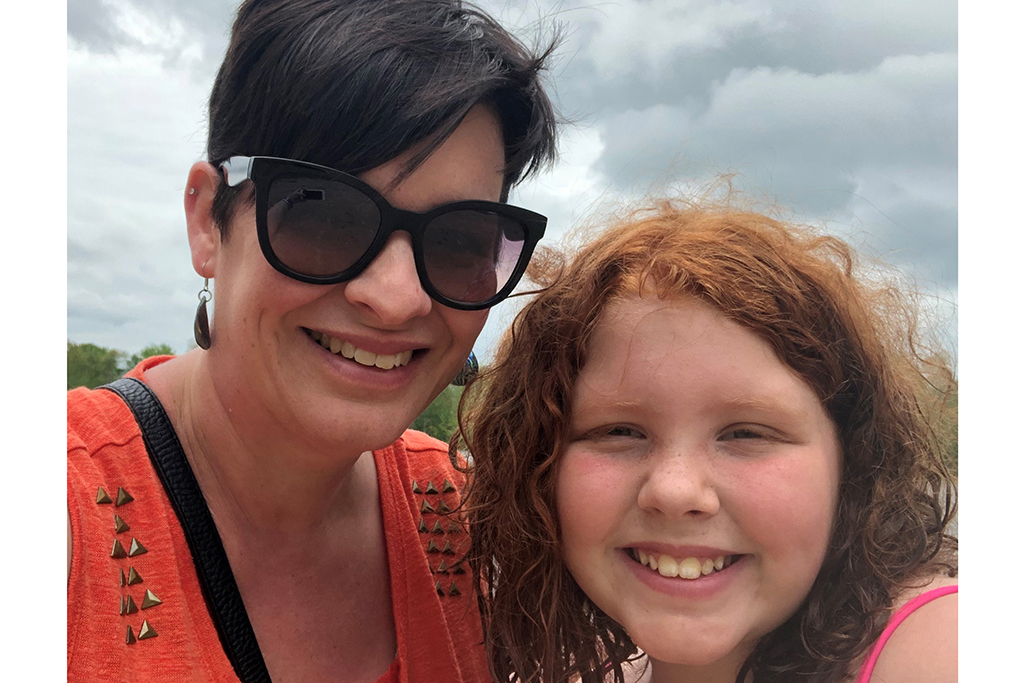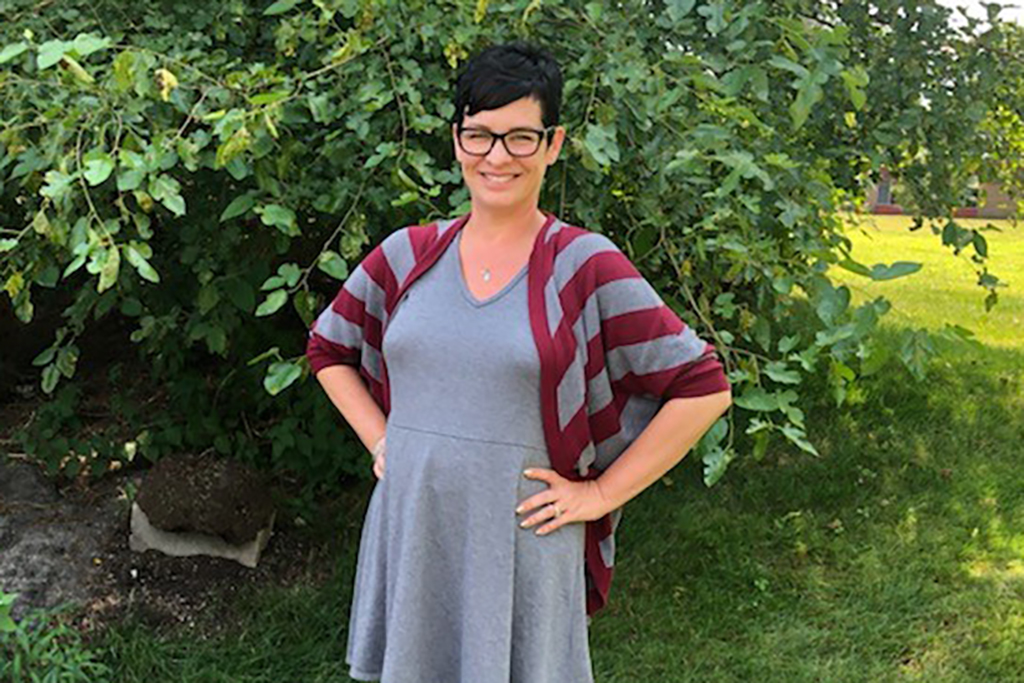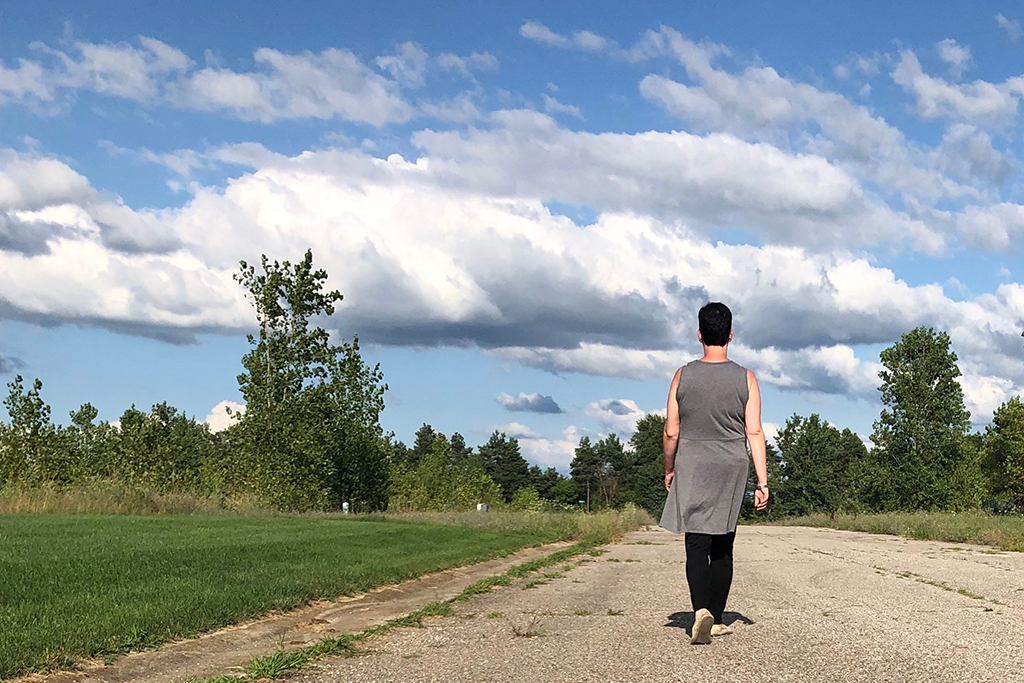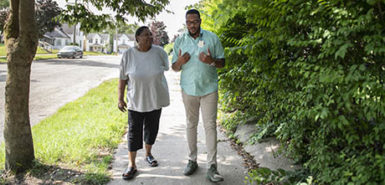The loss of sensation began in her right foot.
Even though she could hardly walk on it, Belding resident Nikki Moon felt little concern, telling herself it would be better in the morning.
But when morning came, the numbness remained, and had spread to her left side. As the numbness crept up her arm, so did her anxiety.
At first, Nikki, 41, believed she might be having a stroke. As her husband drove her through snow to the Spectrum Health United Hospital emergency room in Greenville, she feared the worst.
When she arrived, the team also suspected a stroke; but when the tests came back normal, they sent her home to follow up with her primary care provider.
By the next day, a fierce winter storm called the Polar Vortex covered Michigan with snow and closed businesses, including her doctor’s office. Nikki saw her doctor three days after her trip to the emergency department.
Her doctor discovered a blood sugar level of 307. According to the American Association of Clinical Endocrinologists, blood sugar levels should be under 140 two hours after starting a meal, and between 70 and 100 before breakfast or other meals.
Nikki’s diagnosis? Diabetes.
Diabetic neuropathy explained the numbness she experienced. This is a type of nerve damage which can occur with diabetes, often in the legs and feet. Nerve death occurs when blood sugars are chronically high. It’s estimated about 50% of those with diabetes experience diabetic neuropathy.
Although many would be distressed by this revelation, Nikki’s upbeat spirit led her to think positively.
“I never thought in a million years I would be relieved to be told that I have diabetes, but I was,” Nikki said. “I was thinking something much more horrible, but I can handle diabetes.”
Nikki wasn’t entirely surprised with her diagnosis. Diabetes tends to run in her family. And, while pregnant with her daughter, she had gestational diabetes, a condition that puts both mother and child at a higher risk of developing Type 2 diabetes.
Her doctor referred her to the diabetes education classes offered at Spectrum Health United Lifestyles in Greenville.
She started with an individual assessment to personalize her plan toward a healthier lifestyle. The assessment records a baseline for current lifestyle at home, the budget they are working with, medications, and other factors.
“When they come to the one-on-one, it eases a lot of their anxiety and fears about the food police,” said diabetes educator Lisa Verschueren. “It’s also an excellent starting point for them.”
Nikki leaned in. Engaged and serious about her diabetes journey, Nikki found the classes to be supportive and informative. She learned about eating better, tips to fit exercise into her schedule, how medications affect her and how to track her blood sugar levels.
Nikki began to feel confident in making lifestyle changes.
“One thing that’s really important is the fact that when patients talk about their frustrations, fears, feelings and what they’re going through, they realize that they aren’t alone,” Verschueren said. “With the right tools and the right mindset, anyone can make better choices.”
Nikki stayed motivated.
When she had her first blood sugar screening in January, Nikki’s A1C level hovered at 10.2 percent. In May, she had another screening and her level dropped to 5.8 percent, lower than the 6.5 percent benchmark for diabetes.
“It was extremely easy for me to stick to the plan they put me on, mostly because I think I got scared straight,” Nikki said. “I took everything very seriously that they taught in the program because I already had the neuropathy and I didn’t want to start losing pieces. Whatever I have to do, I’ll do it.”
Nikki’s fear extended from her own well-being to her 10-year-old daughter, Willow.
Her daughter felt anxious about Nikki’s experience with diabetes. Nikki talked at length with her daughter and explained the healthier changes she made to make sure she would be OK.
When Nikki started on her plan, her daughter joined her along the journey toward better health. With a family history of diabetes, her daughter is also at risk of developing diabetes later in life. They both want to put a stop to the family trend.
“This isn’t a diabetic diet, everyone should be eating like this,” Nikki said. “The classes gave me a really good baseline to start with, and I kind of just ran with it.”
Nikki still experiences numbness in her leg, and her doctor isn’t sure if it will ever go away completely. She is now able to do simple things she couldn’t before, such as putting on jewelry and doing her hair.
Nikki encourages people to take symptoms seriously, especially if they’re at higher risk of being diagnosed with diabetes. She ignored her symptoms and passed them off as something else—excusing her blurring vision with sitting at a computer all day for work and numbness in her fingers as the beginning of carpel tunnel.
Nikki is taking her healthier lifestyle in stride, knowing that if she has questions or concerns she can give United Lifestyles a call.






 /a>
/a>
 /a>
/a>
 /a>
/a>
Kudos to Nikki for sharing her story and encouraging others to take good care of themselves! As a mom of a child with Type 1 Diabetes, it would have been nice to have type more explicitly stated in the article, especially with “diagnosis” listed. The general public needs more education about both types and this social media post would be a great way to spread education.